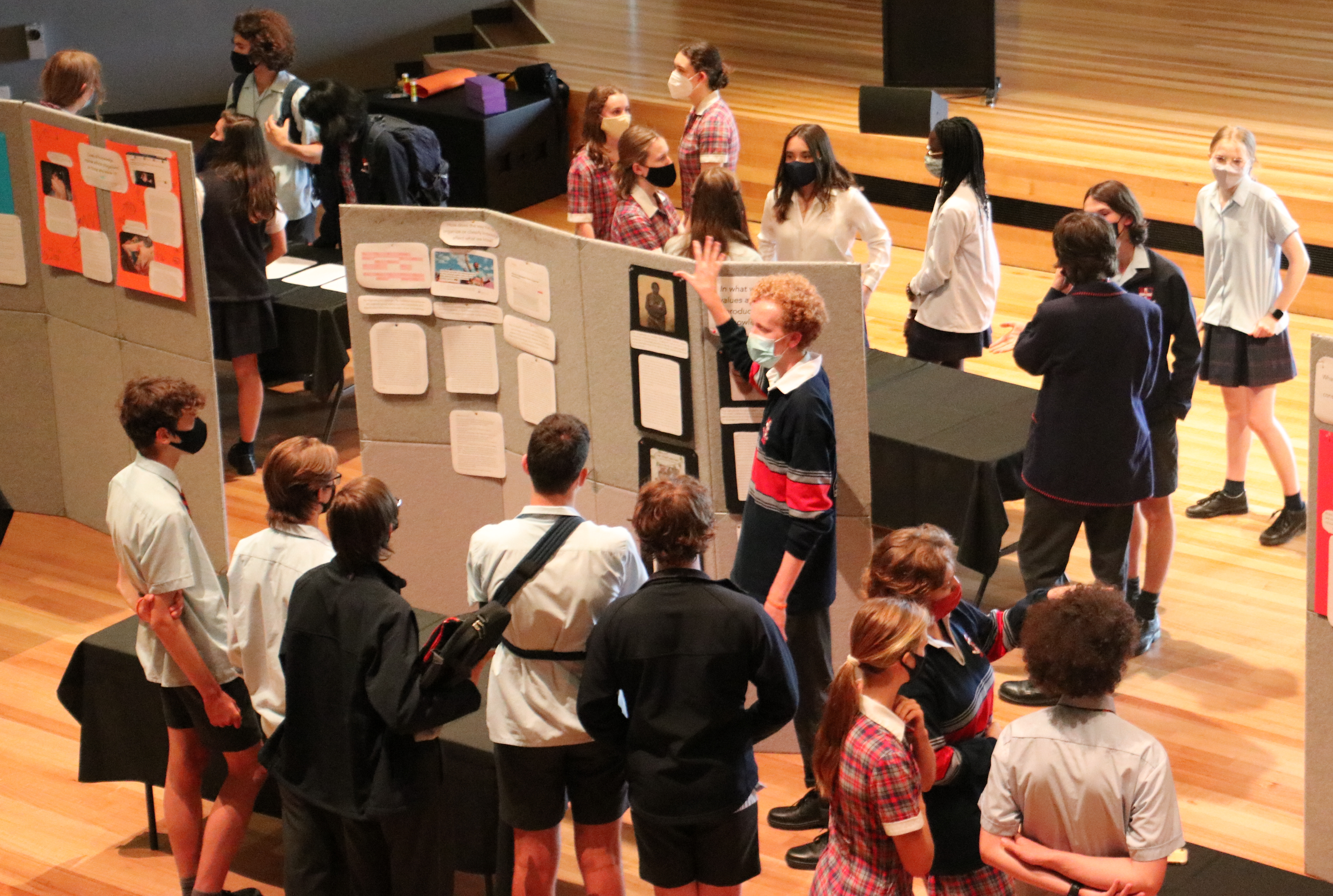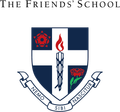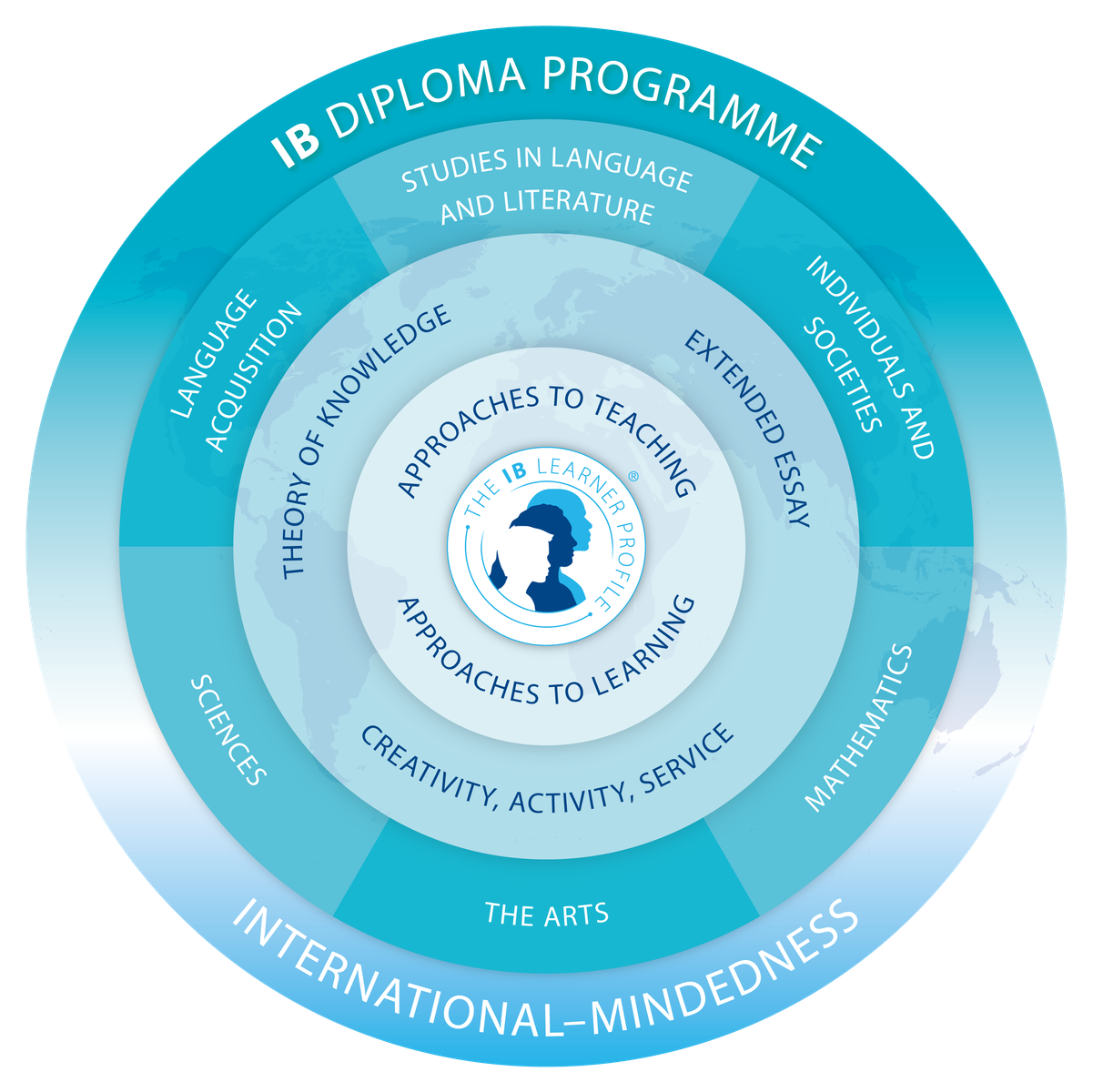Introduction to the IB Diploma Programme (IBDP)

Introduction to the International Baccalaureate Diploma Programme (IBDP)
The International Baccalaureate (IB) aims to develop inquiring, knowledgeable and caring young people who help to create a better and more peaceful world through intercultural understanding and respect. The programme encourages students across the world to become active, compassionate and lifelong learners who understand that other people, with their differences, can also be right.
To this end the IB works with schools, universities, governments and other international organisations to develop a challenging programme of education supported by rigorous assessment. This programme is designed to prepare students to take advantage of opportunities that will be available in the 21st century. The IB Diploma is structured to provide students with the opportunity to gain the maximum benefit from their pre-tertiary studies and enable them to fulfil their potential, whatever their abilities. Students make a commitment to their final two years of secondary education and are provided with support to fulfil their ambitions. This enables them to confidently undertake the final assessments in Year 12, having undertaken systematic development throughout Years 11 and 12.
Our IB Diploma alumni overwhelmingly believe that this programme set them up for their university studies and as lifelong learners. Some reflections can be viewed here:
All Diploma Programme students at Friends' automatically qualify for The Friends' School Year 11 & 12 Certificate.
Queries & Answers
Q: Who should consider doing the IB Diploma?
A: Initially, every student should consider the IB Diploma. It caters for students who wish to be intellectually challenged but also students who wish to further develop themselves as individuals and who are looking to enter university. The IB Diploma focuses on educating the whole person through a balanced academic programme and the other core elements. It is increasingly seen as a model for educational reform in other systems.
Q: Isn’t the IB Diploma Programme new and small?
A: No. The International Baccalaureate is an independent international organisation, based on the collective wisdom of leading educational experts with the input of teachers and educators from many countries. It was established in 1968. There are over 190,000 students sitting IB Diploma exams each year from over 5,600 schools – and the number is growing by nearly 10% each year. This is bigger than any of the Australian state examination systems. It is the biggest educational program in Australia and has been running at The Friends’ School for 25 years.
Q: Are IB subjects weighted in any way?
A: No. In the IB Diploma, students with strengths, interests and talents in all areas of the curriculum get full value for their results. All subjects, both HL and SL, are worth the same. There is equal dignity across subjects.
Q: Do I have to do a language to do the IB?
A: Yes, you do. However, you can either continue the language you have studied in Years 7 to 10 (Chinese, French, Japanese or German), or you can begin studying a language (Spanish ab initio) from the start. You do not have to have been studying a language in Year 10. Native speaker students may be eligible to study their mother tongue language as part of the School-Supported Self-Taught Languages (SSST) program.
Q: What does an IB Diploma course look like?
A: An IB Diploma course contains six academic subjects, and the Core of Theory of Knowledge, the Extended Essay and Creativity, Activity and Service (CAS) commitments, as illustrated in the IB Diploma Programme image (below). See later sections of this online book for details of all Core elements and the available subjects.
Q: How do Australian students rate against the rest of the world?
A: IB Diploma students compare very well to students from all around the world. Australian students consistently perform well – with a Diploma award rate of well over 98%, compared to around 80% worldwide. The Friends’ IB Diploma graduates continue to score very well. In 2021, 50% of our students scored 40 out of a possible 45. This equated to an ATAR of 97.9 and above. The class of 2021 had a mean of 97. In 2022, over 70% of our cohort received an ATAR of 95+, with half the cohort receiving 97.9 and above.
Q: How difficult is the IB Diploma?
A: Like all university entrance qualifications, it is rigorous in terms of engagement and expectations. It is similar to other Australian qualifications, however, the approach is different from the Tasmanian Certificate of Education (TCE). A student’s knowledge and understanding is developed in the classroom for two years through a structured program of learning. The success of the IB Diploma is its ability to systematically develop students’ ability to work more efficiently, not harder, by developing good work habits, critical thinking ability, and the skills of academic writing and research. Research demonstrates that the IB Diploma Programme is excellent preparation for university studies and establishes a strong foundation for success in a students’ chosen career.
Q: How is the IB Diploma assessed?
A: The IB Diploma uses balanced, transparent criterion referenced assessment; what matters is how well you know and understand each subjects’ material. The most important aspect of the IB Diploma is that you are assessed only after you have undertaken significant development in that subject and have undertaken multiple development activities to deepen your understanding of assessed material. Most subjects have externally marked exams, plus one (or a few) teacher marked internal tasks. The maximum IB Diploma score is 45: up to 7 from each academic subject plus up to 3 from the Extended Essay and Theory of Knowledge (TOK) combined. A minimum of 24 points, plus completion of CAS, is needed to gain the Diploma. This score is converted to an ATAR score for comparison with other Australian systems. 2024 Conversion tables can be found through this link.
Q: What about IB Diploma exams? Isn’t everything dependent on the final exams in Year 12?
A: No. Theatre, Music, Dance and Visual Arts have no final examinations but instead are based upon a combination of performance, research, folio and internal assessment work. For all other subjects, exams count for between 60% and 80% of the final mark, depending upon the subject. There are two or three examination papers for most subjects - all shorter than three hours - some as short as 45 minutes. The exams for each subject are taken over two days. The exam period covers three and a half weeks. The exams at the end of Year 12 occur after a revision period of approximately 8 weeks of in-class revision. Two sets of mock exams are completed - one in Year 11 and one in Year 12 - to further develop organisation skills, revision strategies, and exam technique. This provides plenty of time for students to be really prepared for the final assessments. Some students sit one or two Standard Level (SL) subjects in Year 11, lessening the Year 12 workload, this is called taking Anticipated courses. Also, students can retake exams in May or November, the following year, if they wish to improve their scores.
Q: What is CAS? Isn’t it an extra?
A: Creativity, Activity, Service gives recognition for activities outside the classroom – many of which you are already doing. You will learn a lot about yourself and others, as well as building up skills to last a lifetime. Research has suggested that being involved in a CAS-style program enhances academic outcomes. Universities, scholarship boards, and employers now value this aspect of a pre-tertiary education more than ever. For example, the Australian National University (ANU) now considers an applicant’s commitments in these areas alongside their academic performance. In fact, this is a growing trend in all mainland universities.
Q: What is international about the IB?
A: Many things. The underlying principles of the IB are to increase international-mindedness and intercultural understanding through all aspects of the IB programmes. The IB Diploma is recognised by universities in virtually every country, and taught in over 150 countries. Teachers are trained in international workshops and have input into curriculum development. Students and teachers can attend international IB conferences. The IB has a strong international network. Courses have an international focus: students learn about their own culture and the cultures of others. The IB values, the shared humanity that binds us together while respecting the variety of cultures and attitudes that makes for the richness of life.
Q: Isn’t the IB Diploma only for people who want to study overseas?
A: No. Over 90% of Australian IB Diploma students go to their local university. In fact, there are over 1,500 Diploma students currently studying at The University of Melbourne. Most do the Diploma for its innovative features, the quality of learning and assessment tasks, not to study overseas. All Australian universities fully recognise the Diploma, and many give advanced placement or credit for some IB Diploma subjects.
Q: Are there advantages in having the IB Diploma if you want to study overseas?
A: Yes. Overseas universities know how an IB Diploma graduate compares to local students. Some know little about Australian qualifications, and will require evidence of their worth. Many overseas universities automatically give either advanced placement or credit for IB Diploma results. It would be more difficult to convince them to do this for other results.
Structure of an IB Diploma Course
The basic rules for the construction of an IB Diploma course are:
- Students must choose six IB academic subjects in total.
- Students must choose subjects that cover each of Groups 1 to 5. [Note that Environmental Systems and Societies can be chosen for both Groups 3 and 4.]
- Students must choose a sixth subject from Group 3, 4 or 6. [Note that students who use Environmental Systems and Societies to cover both Groups 3 and 4 may choose a second Group 6 subject, or two more from either Group 3 or Group 4.]
- Three subjects must be studied at Higher Level (HL), and three at Standard Level (SL). While the final choice as to which subjects will be studied at which level can be deferred until towards the end of Year 11, you should have a good idea of what your preferences are.
- The course will also include Theory of Knowledge, the Creativity, Activity and Service (CAS) program and an Extended Essay (see pages following).
Notes: A few combinations of subjects are not permitted – the IB Diploma Coordinator will ensure that your course does not violate these exclusions.
Some SL subjects can be Anticipated: that is, the exam may be taken in November of Year 11 and the result carried over to the full Diploma in Year 12 – see individual subject listings.
It is possible, under certain circumstances, for a language not listed in this online book to be studied under the School Supported Self Taught (SSST) program, or online. Please consult the IB Diploma Coordinator, or the Learning Leader Languages, if you are interested in exploring this option.
Students will choose a course that complies with these rules then the School will draw up a timetable structure, taking into account all students’ choices. Some students may then have to re-choose if their chosen course does not fit.
Courses offered for the IB Diploma Programme at The Friends' School for 2023 are:
Group 1 - Studies in Language & Literature
English A: Language & Literature (Higher Level)
English A: Language & Literature (Standard Level)
English A: Literature (Higher Level)
English A: Literature (Standard Level)
SSST A: School Supported Self Taught Language - Literature (Standard Level)*
*Choice of 70+ languages
Group 2 - Language Acquisition
Spanish ab initio (Standard Level)
*Higher Level courses for Chinese B, German B, French B and Japanese B may be available after consultation with the IB Coordinator & Learning Leader Languages.
Group 3 - Individuals & Societies
Digital Society (Higher Level)
Digital Society (Standard Level)
Environmental Systems & Societies (Standard Level)**
Environmental Systems & Societies (Higher Level)
Global Politics (Higher Level)
Global Politics (Standard Level)
Group 4 - Sciences
Computer Science (Higher Level)
Computer Science (Standard Level)
Design & Technology (Higher Level)
Design & Technology (Standard Level)
Environmental Systems & Societies (Standard Level)**
Environmental Systems & Societies (Higher Level)**
Sports & Exercise Health Science (Standard Level)
Sports & Exercise Health Science (Higher Level)
Group 5 - Mathematics
Mathematics - Analysis & Approaches (Higher Level)
Mathematics - Analysis & Approaches (Standard Level)
Mathematics - Applications & Interpretations (Standard Level)
Group 6 - The Arts
** this course can count as a Group 3 or Group 4 course.
The following courses show some of the possibilities. Other similar combinations are possible.
Broad-based Diploma
| Group 1 | English Literature HL |
| Group 2 | French B SL |
| Group 3 | Economics HL |
| Group 4 | Sports & Exercise Health Science SL |
| Group 5 | Maths Analysis & Approaches SL |
| Group 6 | Visual Arts HL |
Broad-based Diploma
| Group 1 | English Language & Literature HL |
| Group 2 | German B SL |
| Group 3 | Philosophy SL |
| Group 4 | Biology HL |
| Group 5 | Maths Applications & Interpretations SL |
| Group 6 | Music HL |
Arts-based Diploma
| Group 1 | English Literature HL |
| Group 2 | Spanish ab initio SL |
| Group 3 & 4 | Environmental Systems & Societies SL |
| Group 5 | Maths Applications & Interpretations SL |
| Group 6 | Visual Art HL & Theatre HL |
Humanities-based Diploma
| Group 1 | English Literature HL |
| Group 2 | Chinese B SL |
| Group 3 | Economics HL & Digital Society SL |
| Group 4 | Environmental Systems & Societies HL |
| Group 5 | Maths Applications & Interpretations SL |
Science-based Diploma
| Group 1 | English Language & Literature SL |
| Group 2 | Japanese B SL |
| Group 3 | Psychology SL |
| Group 4 | Chemistry HL & Biology HL |
| Group 5 | Maths Analysis and Approaches HL |
Technologies-based Diploma
| Group 1 | English Language & Literature SL |
| Group 2 | Spanish ab initio SL |
| Group 3 | Global Politics SL |
| Group 4 | Computer Science HL & Design & Technology HL |
| Group 5 | Maths Analysis and Approaches HL |
Languages based Diploma (Bilingual Diploma)
| Group 1 | English Literature SL & Vietnamese Literature (SSST) SL |
| Group 3 | Global Politics HL |
| Group 4 | Sports, Exercise & Health Science HL |
| Group 5 | Maths Analysis and Approaches HL |
| Group 6 | Dance SL |
- Students may choose a second Group 2 subject if timetable and course constraints allow it. Students interested in this possibility should speak directly with the Head of Languages.
- Students who study two Group 1 subjects or a Group 1 subject in a language other than English may obtain a Bilingual Diploma.

